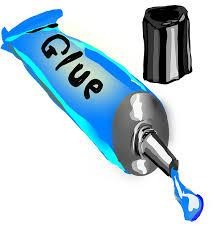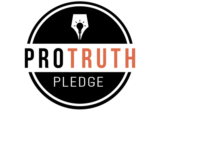
“We love these workshops. They’re so meaningful, and every time we leave the session all fired up and committed to teamwork. But a month later we’re back to our old tricks again!”
That’s what an executive told me after a workshop I ran for them. These sorts of sentiments came up again and again when I worked with teams to help them gain insights about how to collaborate more effectively.
At these workshops, we talk about how their current thinking is leading to their current results – the kind of results that lead them to call me in. We conduct fun, participatory team exercises to show how just a small shift in thinking can lead to dramatically better behavior and results. By the end of a one- or two-day session, participants sing the praises of the program and commit to personal change. Yet as fantastic as that is, I often hear that the change wouldn’t stick.
Has this ever happened to you? You have an experience, gain an insight, commit to change… and then you, too, are back to your old tricks.
This is a common human experience. We learn something. We know we need to change and we know how. Maybe we want to change our fitness, our work pattern, our diet, or anything else. We want to gain agency over our lives. We might even feel committed to that change for a time, but after awhile we go back to our old habits. Why?
A big part of this is the power of our autopilot or “elephant”. The habits we find so hard to change are helping us meet needs. In the opportunity to engage my new, chosen behavior, at some level I believe that doing things the new way this time will leave me with unmet needs in the end.
“I know I committed to speaking up for myself, but I can’t do it this time because he looks angry and I’ll get blasted.”
The more I find exceptions to engaging the new behavior, the more I feed the old behavior.
Change requires attention and focus. In 2007 executive coach David Rock and psychiatrist Jeffrey Schwartz published an article in Strategy+Business called The Neuroscience of Leadership in which they highlighted attention and focus, particularly the insight that a human brain not only changes in response to environmental changes, but also because of where a person puts their attention.
Here are some ways to focus attention for behavioral change:
- Review your insights. Record your insights as you have them and review regularly. Journaling is one example:
- Carry a notebook with you.
- Jot a note to yourself when you feel that “Ah hah!” moment happen.
- Review these notes on a regular basis. (Art journaling can be a great way to focus attention on the same insight for an even longer period of time.)
- Visualize/imagine yourself behaving in the new way. This is more powerful than you might expect. Our brains change when we imagine practicing a new behavior. When we take the time to visualize a behavioral change, the attention helps us hold the information about what we intend to do longer than we can hold it without the visualization.
- Say you’re trying to change a pattern of overreacting when you don’t get your way. You visualize reading or hearing about a boundary someone won’t let you cross, and also visualize yourself breathing, counting to ten, and walking away. The visualization makes it much more likely that when you are triggered you will enact the new behaviors.
- Anticipate the barriers to change so you can work around them or remove them. For example, if you know you tend to walk right back and overreact anyway because you need to express yourself so your intentions will be understood, you can plan to redirect that need for self-expression to a compassionate friend.
- Role play / practice and ask for feedback: If you have a friend who is willing to help you practice your new behavior without judgment, this can help as well.
- Whether you practice with a friend or just try it for real, an important tool for focusing your attention is to reflect on the experience afterward.
- What worked well or didn’t work?
- Do you know why it did or didn’t work?
- What would you try differently next time?
- Whether you practice with a friend or just try it for real, an important tool for focusing your attention is to reflect on the experience afterward.
I invited that executive to join me in a sustainability experiment. I prompted him to select a core team of individuals to help him focus the larger team’s attention on new desired behaviors. For instance, they made a rule that anyone on a conference call must be fully mentally present, tuned in and responsive, for that call. The core team also identified ways of removing the barriers to change: they committed to inviting only the necessary participants and making the calls shorter, more efficient, and more engaging so they wouldn’t lose people to the old behaviors. Finally, they focused on giving each other feedback about the example they were setting. After each conference call, the executive’s core team would let him know how he did on the call, and he listened.
The results? The larger team began to see a shift like never before.
We have to focus attention on the new behaviors we want, or the learning won’t stick. Remember the three key elements to making change that sticks:
- Identify the new behavior.
- Visualize yourself enacting the new behavior. Remove any barriers you can.
- Roleplay / practice and ask for feedback.
What change is important enough for you to focus your attention on now? How do you want things to be different? Can you see yourself acting in the new way? What barriers can you remove ahead of time? Who could you partner with to try, fail, practice, and get feedback?
You are in charge — the change is up to you.




